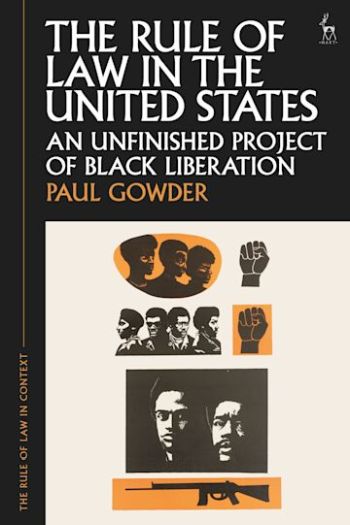
What is the American rule of law? Is it a paradigm case of the strong constitutionalism concept of the rule of law or has it fallen short of its rule of law ambitions?
This book traces the promise and paradox of the American rule of law in three interwoven ways. It focuses on explicating the ideals of the American rule of law by asking: how do we interpret its history and the goals of its constitutional framers to see the rule of law ambitions its foundational institutions express?
It considers those constitutional institutions as inextricable from the problem of race in the United States and the tensions between the rule of law as a protector of property rights and the rule of law as a restrictor on arbitrary power and a guarantor of legal equality. In that context, it explores the distinctive role of Black liberation movements in developing the American rule of law.
Finally, it considers the extent to which the American rule of law is compromised at its frontiers, and the extent that those compromises undermine legal protections Americans enjoy in the interior. It asks how America reflects the legal contradictions of capitalism and empire outside its borders, and the impact of those contradictions on its external goals.